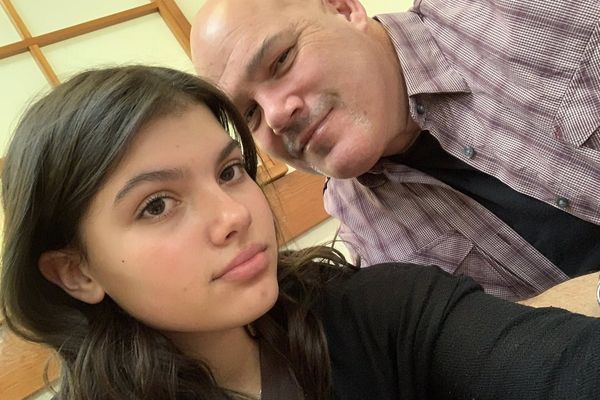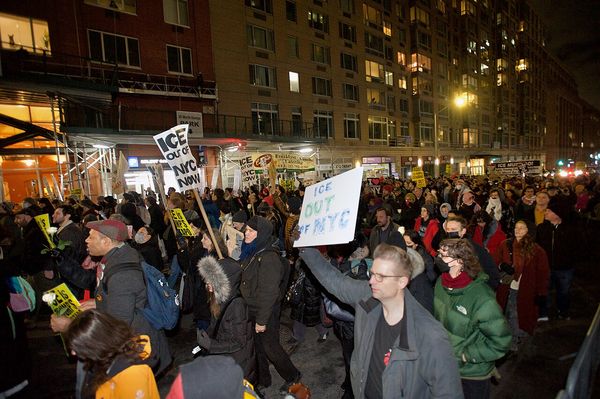
The first album by the Specials came out in 1979, when I was two. My love for them sits alongside memories of not being heard in time when I called for the toilet from my cot, and of burying a friend’s silver spoon in the sand and then being unable to find it. So my attachment to the 2 Tone pioneers is in a file with the early feeling that, despite my best intentions, I had no control over outcomes.
After fronting the Specials, Terry Hall went on to lead Fun Boy Three and the Colourfield; he co-wrote Our Lips Are Sealed with Jane Wiedlin, which became a huge hit for both her group, the Go-Gos, and Fun Boy Three. He also joined forces with Ian Broudie to write songs for the Lightning Seeds’ album, Sense. Home, the first album credited to Hall alone, was released in 1994 to critical success and commercial failure.
I was a teenager working at a different national newspaper, where I pushed hard to profile him. For the music, and its audible influence on everyone from Blur to No Doubt. But also the groundbreaking work his bands had had in the anti-racism movement at the height of the National Front, and the childhood abuse he’d written a devastatingly matter-of-fact song about [Well Fancy That! with Fun Boy Three].
Getting the best of any interviewee takes prep, but it’s stranger when the person you’re interviewing is a first memory. I read Hall loved Sophia Loren and so I replicated her eye make up. That’s a lot for an interview in a pub in Coventry. If it had any effect, he was unreadable, his expression famously hangdog. But he was generous with his time, his thoughts, and then he drove me back to the station.
When I opened the paper on the Sunday, my article had been cut, with no forewarning, from 1,000 words to 200 and placed as an inset, inside a longer profile of Suggs from Madness. To show lack of care and respect to a 16-year-old girl in the early 90s was tantamount to breathing. But to Terry Hall? I posted an apology card that his PR said was appreciated, as Hall had been genuinely hurt. And on Monday morning, I quit my contract at the paper. I remember so well, my editor replying: “You’re only just starting out. Do not burn this bridge”.
I’ve changed a lot between my teens and middle age, but then and now the visual of a burning bridge is beautiful to me. I love how it looks as the daylight changes, the reflection of the flames on the water. If you are vulnerable, gentle or damaged, you must learn to swim, or evolve until you grow wings and fly. Or, you never actually grow wings because you are a human but you dream about it, and then draw pictures of the dreams, and there’s your art.
That’s all I’m reaching for. It’s what Terry Hall achieved, or he wouldn’t have sung in 1979 “You only wanted to die in order to show off” and 1994 “Feels like I’m living in a town closed down for winter”, which is a conversation about the same feeling, just at different ages. His lyrics have a particular rhythm: like ordinary people talking, but not speaking as they do in life. The playwright Martin McDonagh does that too.
When Hall died last December, all across Twitter and Instagram were the most heartfelt, lavish tributes. And I remember that insulting little inset and the only thing that makes me feel better is that “Insulting Little Inset” could be an album title.
I text my mum, telling her how gutted I felt. As I am putting my daughter to bed, my mum replies: “He had spinach-coloured eyes”. I look at it and laugh out loud. A touching tribute. But this is high, high compliment from a woman who’ll say such admiring things as, “She has a skull shaped like a tortoiseshell cat!” When I have to give a remembrance for my mum, I will say how much I’ll miss her remembrances.
The last man I loved was a highly intelligent man from the Midlands whose childhood trauma had left him with an unreadable face. That’s how you take them with you, your first childhood idol, you carry them into middle-age love. I couldn’t explain to this boyfriend (who was younger than me) why Terry Hall’s premature passing at 63 made me cry so much because, to him at his age, Hall wasn’t that important. Just like the article I wrote, that wasn’t actually what I wrote, but did have my name beside it, that made Hall feel unimportant.
Everything that newspaper did wrong in diminishing him was erased by another young woman, 23 years later. The photo was endlessly shared of Saffiyah Khan, a Birmingham Asian girl wearing a Specials T-shirt, looking amused and calm in the shouting face of an EDF racist. I’m so glad he lived to see that. He was touched enough to call Khan and ask her to collaborate in a reworking of Prince Buster’s problematic 1963 song Ten Commandments Of Man – for the Specials’ first album of new material with Terry Hall in nearly 40 years [Encore].
Terry Hall’s catalogue is a series of immaculate burning bridges, reflecting the listeners fear and longing, appearing different at sunrise than sunset. “Come here,” I’d say to the stone-faced man from the Midlands, as I kissed to them.
Busy Being Free by Emma Forrest is published by Weidenfeld & Nicolson (£18.99). To support the Guardian and Observer order your copy at guardianbookshop.com. Delivery charges may apply







